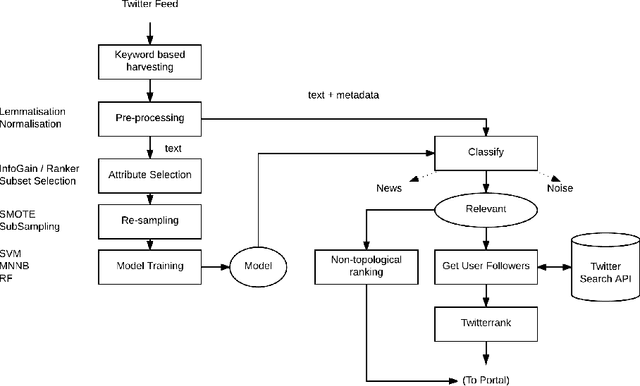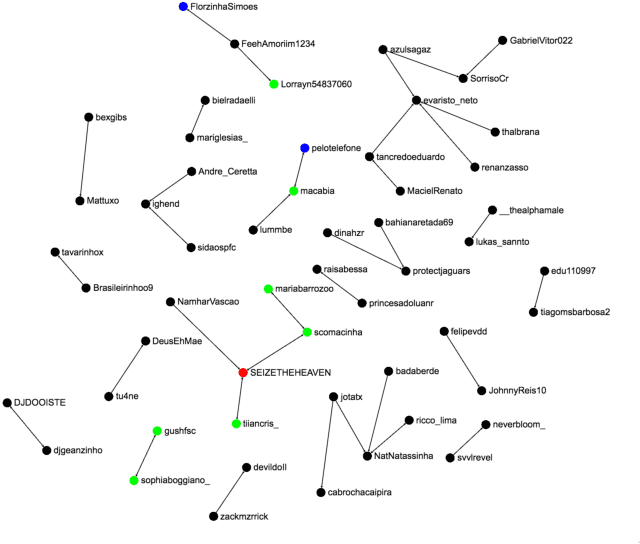Recruiting from the network: discovering Twitter users who can help combat Zika epidemics
Paper and Code
Mar 11, 2017



Tropical diseases like \textit{Chikungunya} and \textit{Zika} have come to prominence in recent years as the cause of serious, long-lasting, population-wide health problems. In large countries like Brasil, traditional disease prevention programs led by health authorities have not been particularly effective. We explore the hypothesis that monitoring and analysis of social media content streams may effectively complement such efforts. Specifically, we aim to identify selected members of the public who are likely to be sensitive to virus combat initiatives that are organised in local communities. Focusing on Twitter and on the topic of Zika, our approach involves (i) training a classifier to select topic-relevant tweets from the Twitter feed, and (ii) discovering the top users who are actively posting relevant content about the topic. We may then recommend these users as the prime candidates for direct engagement within their community. In this short paper we describe our analytical approach and prototype architecture, discuss the challenges of dealing with noisy and sparse signal, and present encouraging preliminary results.
 Add to Chrome
Add to Chrome Add to Firefox
Add to Firefox Add to Edge
Add to Edge